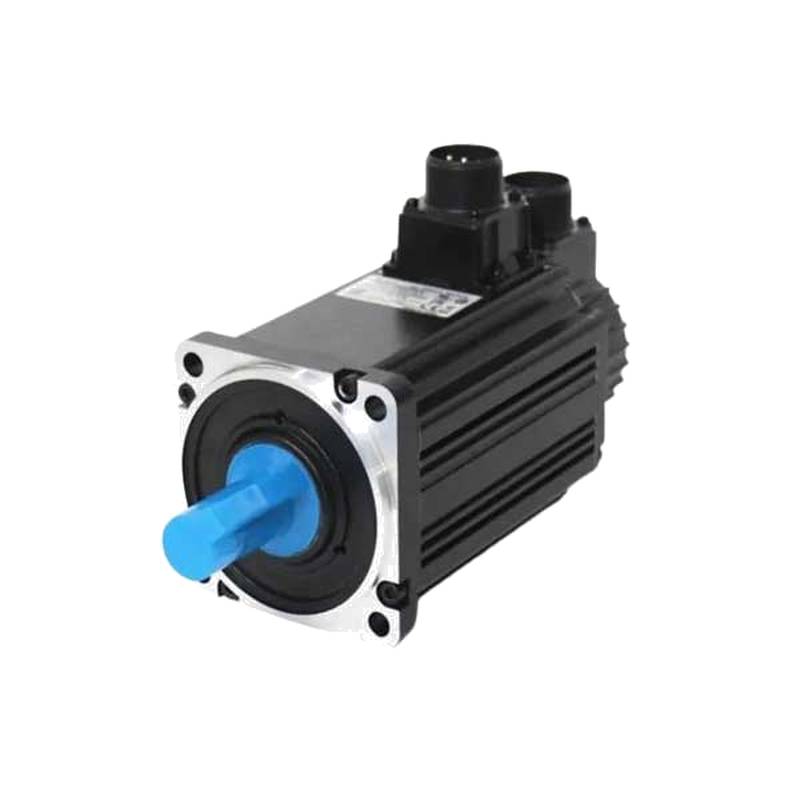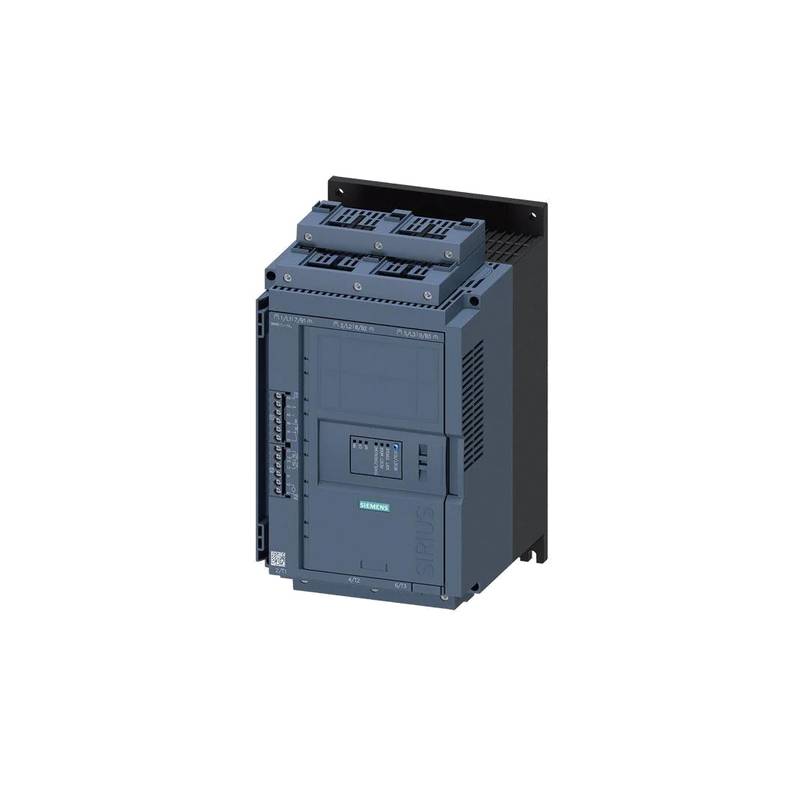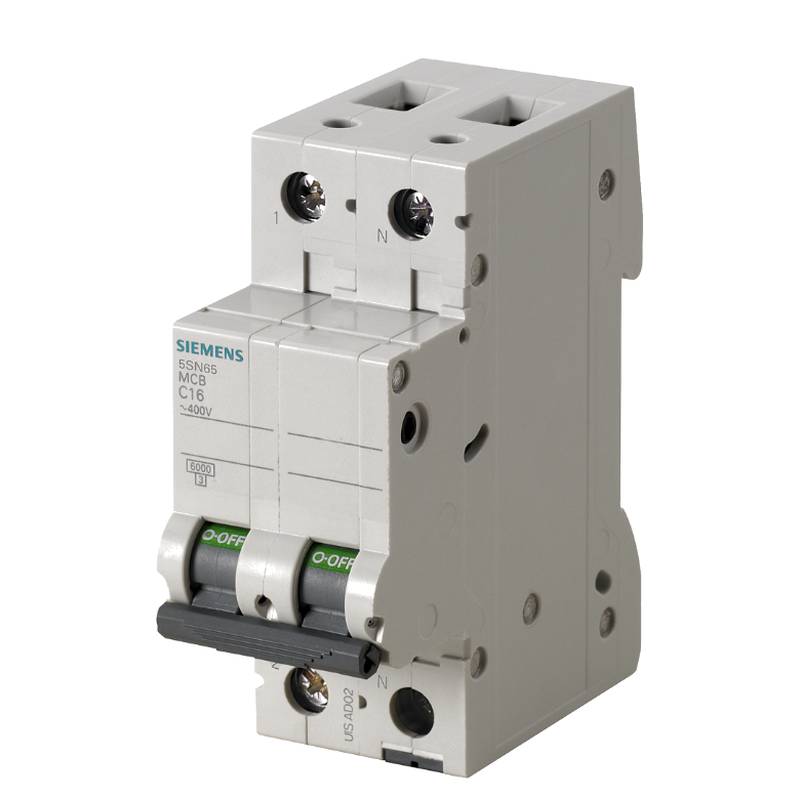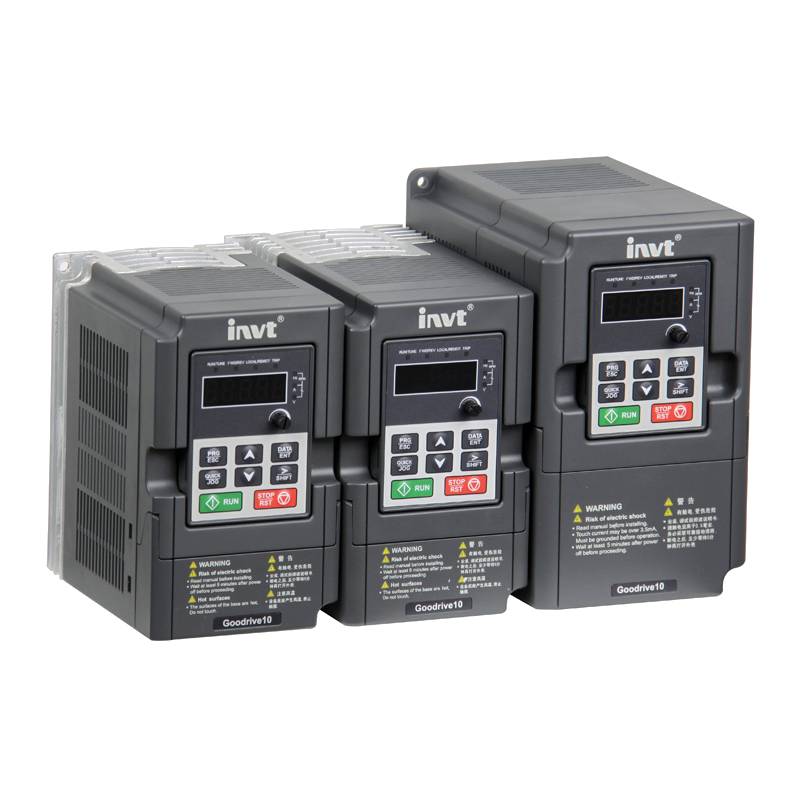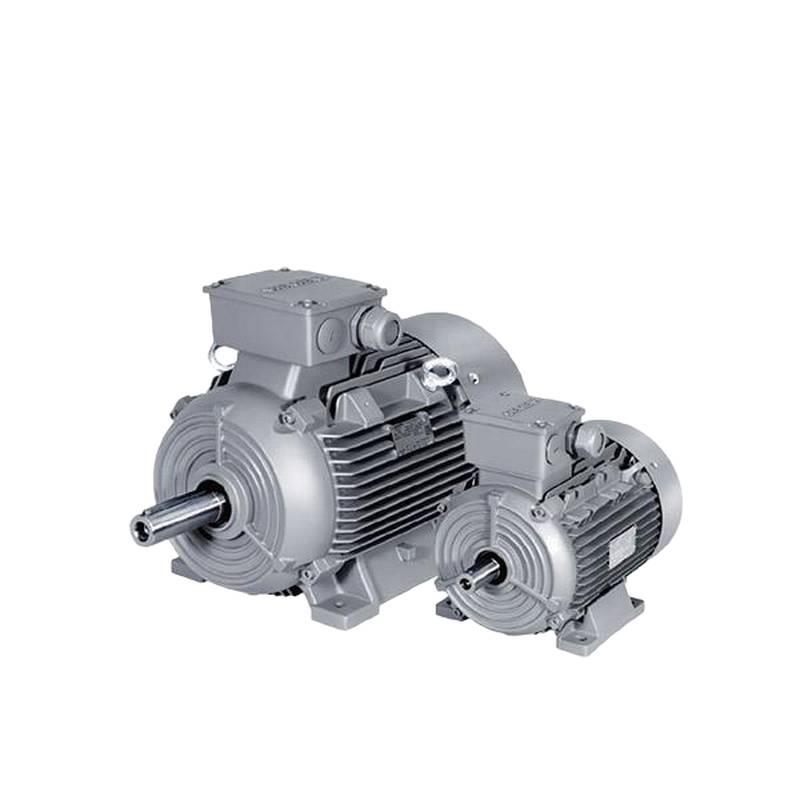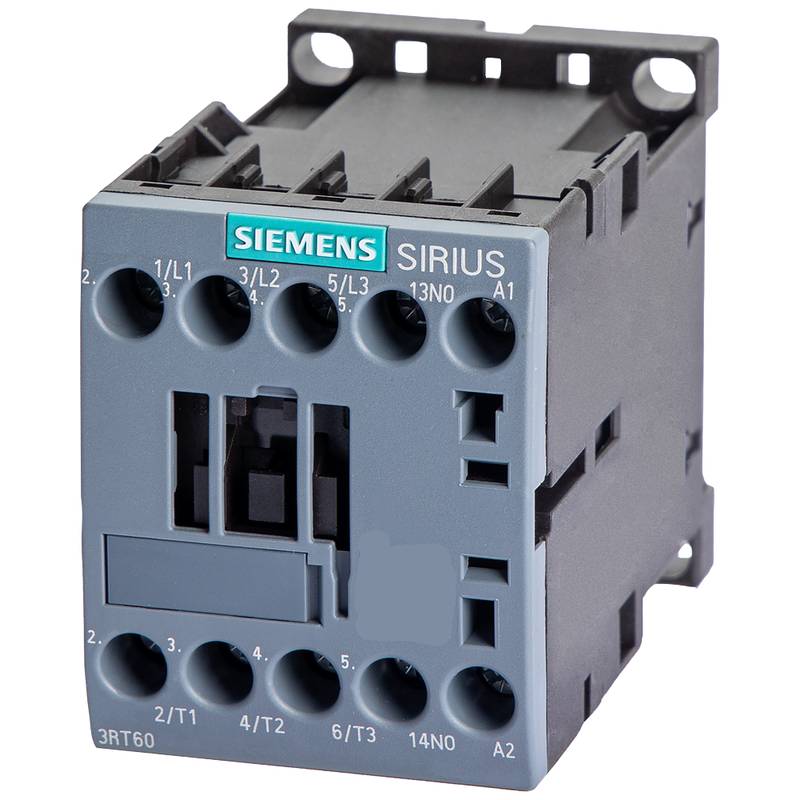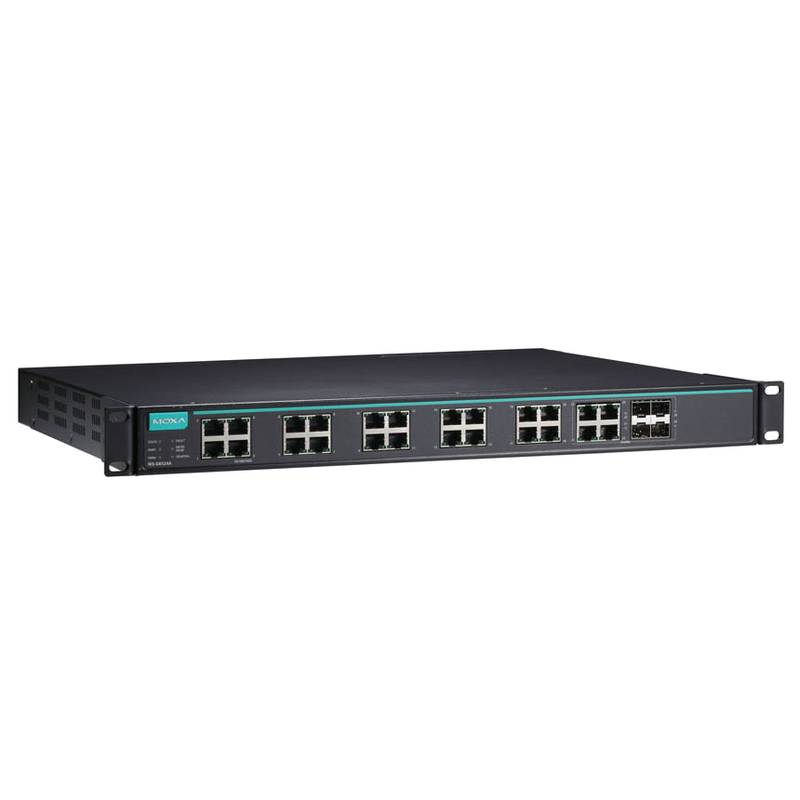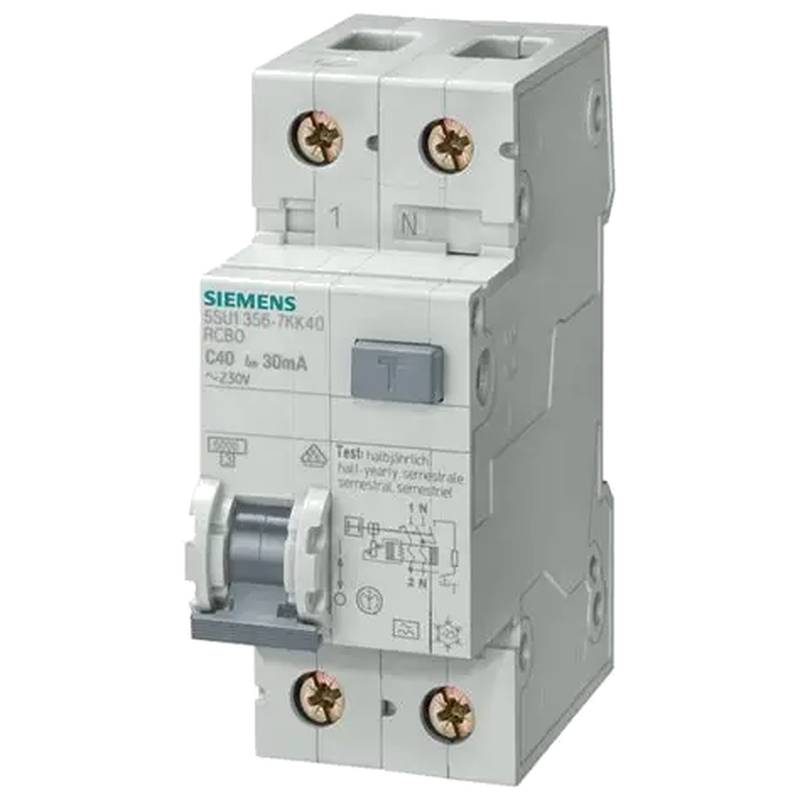
The Delta ECM-B3M-EA1310RS1 resolver encoder servo motor is a high-performance component designed for demanding industrial automation applications. This medium inertia motor delivers a rated torque of 4.77 N-m with a power output of 1 kW, operating at 220 VAC. Its compatibility with the ASDA-B3 servo drive series ensures seamless integration and access to advanced motion control functions that optimize production efficiency. Key advantages include its robust construction, precise positioning capabilities facilitated by a resolver encoder, and suitability for various operational environments.
Delta ECM-B3M-EA1310RS1 Servo Motor Specifications
| Parameter | Value |
| :-------------------- | :------------------- |
| Series | ECM-B3M |
| Model Number | ECM-B3M-EA1310RS1 |
| Power | 1 kW |
| Rated Torque | 4.77 N-m |
| Voltage | 220 VAC (1~230 VAC) |
| Output Current | 7.3 Arms |
| Motor Inertia | Medium |
| Encoder Type | Resolver Encoder |
| Brake | No Brake |
| Frame Size | 130 |
| Shaft Diameter | 22 mm |
| Speed (Rated) | 2000 rpm |
| Insulation Class | Class A (UL), Class B (CE) |
| Operating Temperature | -20°C to 60°C |
| IP Rating | IP67 (with specific connections/oil seal) |
Core Features & Market Positioning
The Delta ECM-B3M-EA1310RS1 stands out in the competitive servo motor market due to its advanced resolver encoder technology, offering high accuracy and reliability in position feedback. As part of Delta's newest generation of servo system motors, it is engineered for compatibility with the ASDA-B3 servo drive, creating a robust and user-friendly motion control solution. This integration allows for precise motion control functions that enhance production efficiency and output value. The motor's medium inertia characteristics make it suitable for applications requiring a balance of dynamic response and stable operation. Its positioning as a reliable component within Delta's broader automation ecosystem underscores its market value for users seeking integrated, high-performance solutions.
Key Application Scenarios
This servo motor is ideally suited for a wide array of industrial automation tasks that demand precise and consistent motion control. Common application areas include packaging machinery, where accurate positioning and speed control are critical for efficient operation. It is also widely utilized in CNC machinery for tasks requiring high-resolution movement and repeatability, such as milling, turning, and grinding. The ECM-B3M-EA1310RS1 is a strong candidate for robotics, contributing to the precise articulation of robotic arms in assembly lines or pick-and-place operations. Furthermore, its suitability extends to material handling systems, automated assembly lines, and other industries where dynamic performance and accurate feedback are paramount for optimizing throughput and product quality.
Practical System Integration Guidance
Integrating the Delta ECM-B3M-EA1310RS1 servo motor with its compatible ASDA-B3 servo drive is streamlined through thoughtful design and clear documentation. While specific wiring diagrams are best sourced from the official Delta ASDA-B3 series manuals, general integration principles involve connecting the motor's power and encoder feedback cables to the designated terminals on the servo drive. Ensuring proper grounding is crucial for signal integrity and safety. The motor's resolver encoder requires specific configuration within the ASDA-B3 drive's parameters for accurate operation. Auto-tuning functions within the servo drive can assist in optimizing motor performance, tuning gain parameters, and ensuring smooth operation within the application's dynamic requirements. Careful attention to cable routing, particularly separating motor power cables from sensitive encoder feedback signals, will prevent electromagnetic interference and ensure reliable performance.
Operation and Risk Mitigation
Operating the Delta ECM-B3M-EA1310RS1 servo motor necessitates adherence to safety protocols and an understanding of potential operational issues. Users should consult the ASDA-B3 servo drive manual for detailed operating instructions and safety guidelines. Key risk mitigation strategies involve ensuring the motor is correctly installed and wired to prevent electrical hazards. Overheating can be a concern; therefore, ensuring adequate ventilation and operating within the specified temperature range of -20°C to 60°C is vital. If the motor is equipped with an oil seal, maintaining its integrity is important for preventing contamination. In the event of motor or drive alarms, such as AL036 (Encoder alarm status error) or AL001 (Overcurrent), refer to the servo drive's troubleshooting section. These alarms often indicate issues with wiring, environmental conditions, or component failure, and prompt investigation, often involving power cycling or checking cable connections, is recommended.
Scalability & Long-Term Value
The Delta ECM-B3M-EA1310RS1 servo motor offers considerable scalability and long-term value, primarily through its integration within Delta's comprehensive automation ecosystem. Its compatibility with the ASDA-B3 servo drive series, and potential backward compatibility with ASDA-A2 and ASDA-A3 series models, provides flexibility for system upgrades or expansions. This allows users to maintain existing infrastructure while incorporating newer, more advanced components. For applications requiring more sophisticated communication protocols, the ASDA-B3 series supports high-speed options like EtherCAT, which can significantly reduce wiring complexity and enhance multi-axis control capabilities. This focus on interoperability and advanced communication ensures that systems built around the ECM-B3M-EA1310RS1 can adapt to evolving industrial demands, including the integration with IIoT platforms for enhanced data monitoring and predictive maintenance.
Frequently Asked Questions (FAQs)
1. What are the primary advantages of using the Delta ECM-B3M-EA1310RS1 servo motor?
This motor offers high precision due to its resolver encoder, ensuring accurate position feedback. It's designed for robust performance in industrial settings. Its compatibility with the ASDA-B3 drive provides advanced control.
It delivers a reliable 1 kW power output with a medium inertia profile, balancing responsiveness and stability. The motor is built for consistent operation within a wide temperature range.
The combination of Delta's engineering and advanced feedback technology makes it a valuable component for demanding automation tasks.
2. How does the resolver encoder in the ECM-B3M-EA1310RS1 differ from absolute encoders?
Resolver encoders provide analog signals that are interpreted by the drive to determine position. They are known for their ruggedness and resistance to harsh environments.
Absolute encoders, in contrast, provide a digital output representing the exact position upon startup, without needing a homing sequence. The ECM-B3M-EA1310RS1 specifically utilizes a resolver.
While absolute encoders offer direct position reading, resolver systems are often favored for their durability and cost-effectiveness in specific industrial applications.
3. What are the key technical specifications to consider for the Delta ECM-B3M-EA1310RS1?
Crucial specifications include its 1 kW power rating and 4.77 N-m rated torque. The medium inertia is important for application dynamics.
The 220 VAC operating voltage and 7.3 Arms output current are key electrical parameters. Its IP67 rating (with proper connections) signifies environmental protection.
Understanding the 2000 rpm rated speed and the absence of a brake are also vital for correct application matching and system design.
4. What types of industrial applications are best suited for this servo motor?
This motor excels in applications demanding precise motion control, such as automated assembly lines and packaging machinery. CNC machines benefit from its high accuracy.
Robotics, material handling systems, and printing equipment are other strong candidates. Any scenario requiring repeatable, accurate movements fits well.
Its medium inertia and robust design make it versatile for various manufacturing and processing environments.
5. How is the Delta ECM-B3M-EA1310RS1 servo motor typically integrated into an automation system?
Integration involves connecting the motor's power and feedback cables to a compatible ASDA-B3 servo drive. Proper grounding is essential for signal integrity.
Configuring the motor parameters within the servo drive, often using auto-tuning functions, optimizes performance. Careful cable management to avoid interference is recommended.
Consulting the ASDA-B3 servo drive manual for detailed wiring and setup procedures is crucial for successful integration.
6. What are common troubleshooting steps for issues related to the encoder on this motor?
Check encoder signal cable connections for looseness or damage. Ensure proper shielding of the encoder cable to prevent interference.
Verify motor grounding and that the encoder feedback is correctly wired to the drive. Alarm codes like AL036 may indicate encoder issues requiring specific checks.
If an internal encoder fault is suspected (e.g., AL025), after checking external connections, motor replacement might be necessary.
7. Can the ECM-B3M-EA1310RS1 be used in applications requiring holding torque without a brake?
While this specific model, ECM-B3M-EA1310RS1, does not have a built-in brake, servo drives can often maintain holding torque through active control. This requires the drive to continuously power the motor coils.
The servo drive can provide a strong holding force when stationary by commanding zero speed with a specific torque. This is a functional equivalent to a brake for static holding.
However, for applications where power loss must result in the load being held, a motor variant with an integrated brake is necessary. This model is not equipped for that scenario.
8. What are the environmental operating limits for the Delta ECM-B3M-EA1310RS1?
The motor can operate reliably within a temperature range of -20°C to 60°C. This covers a broad spectrum of industrial environments.
It has an IP67 rating when used with waterproof connections and an oil seal, protecting against dust and water immersion. This ensures durability in challenging conditions.
Storage conditions are also specified from -20°C to 80°C with humidity not exceeding 90% RH (non-condensing).
9. How does the ASDA-B3 servo drive enhance the performance of the ECM-B3M-EA1310RS1 motor?
The ASDA-B3 drive provides precise current, voltage, and position control tailored for the ECM-B3M-EA1310RS1. It enables advanced functions like auto-tuning and vibration suppression.
High-speed communication protocols such as EtherCAT are supported, allowing for simplified wiring and enhanced multi-axis synchronization. This speeds up integration and improves system performance.
The drive's advanced algorithms and parameter settings are optimized to extract maximum performance and accuracy from the motor.
10. Are there specific maintenance requirements for the Delta ECM-B3M-EA1310RS1 servo motor?
Regular visual inspection for any signs of physical damage or contamination is recommended. Ensure cooling vents are clear for optimal thermal management.
If an oil seal is fitted, periodically check its condition to prevent lubricant leakage or ingress of contaminants. Lubrication is typically not user-serviceable; refer to specific Delta maintenance guidelines.
Routine checks of motor connections and cable integrity will ensure reliable operation and prevent potential faults or downtime.














